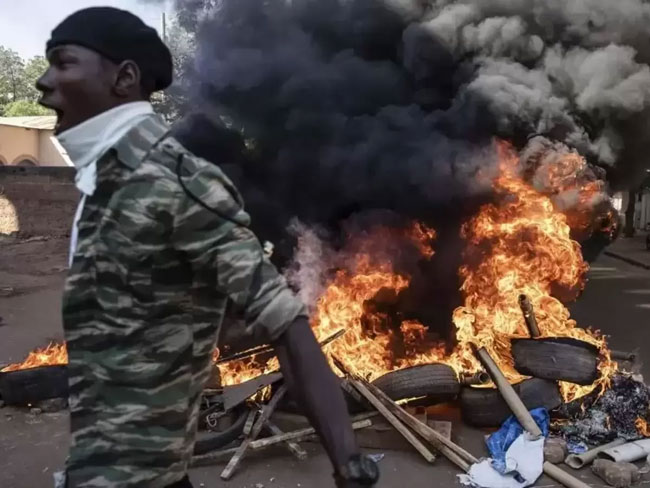Desk:A devastating terrorist attack rocked the African nation of Burkina Faso on Sunday, leaving more than 100 people dead, most of whom were soldiers. The attack occurred in the northern part of the country, primarily targeting the strategically important town of Djibo and its surrounding areas. Militants struck several military installations and other key locations. The Al-Qaeda-affiliated terror group ‘Jama’at Nasr al-Islam wal-Muslimin’ (JNIM) has claimed responsibility for the attack.
Coordinated Assault on Eight Locations
According to reports, the assault began around 6 AM on Sunday, when terrorists simultaneously attacked eight different locations. All entry routes to Djibo were seized in the initial phase, followed by direct strikes on key security outposts, including the main camp of the anti-terrorist unit.
Witnesses Speak Out
A local social worker and a student, both of whom lost family members in the attack, described the ordeal as a well-coordinated siege. The attackers encircled the city and continued the assault for several hours. Notably, no aerial support arrived from the army—support that had played a crucial role in repelling past attacks. Independent analyst Charlie Werb, who reviewed online videos of the incident, confirmed that the militants held control over the area for an extended period and that no effective immediate military response was observed.
Experts Raise Alarm
Security expert Wassim Nasr warned that the attack signifies JNIM’s growing power and its ability to operate freely in Burkina Faso. “The strike on Djibo indicates that these terrorist groups are now advancing without resistance,” he stated.
It’s worth noting that Burkina Faso has undergone two military coups in 2022. Since then, a military junta has controlled the country. Nearly half the population is believed to live in areas outside government control. In an attempt to combat terrorism, the authorities have armed thousands of civilians to form militias. However, analysts believe this has only worsened the situation, fueling ethnic tensions and further destabilizing the region.




